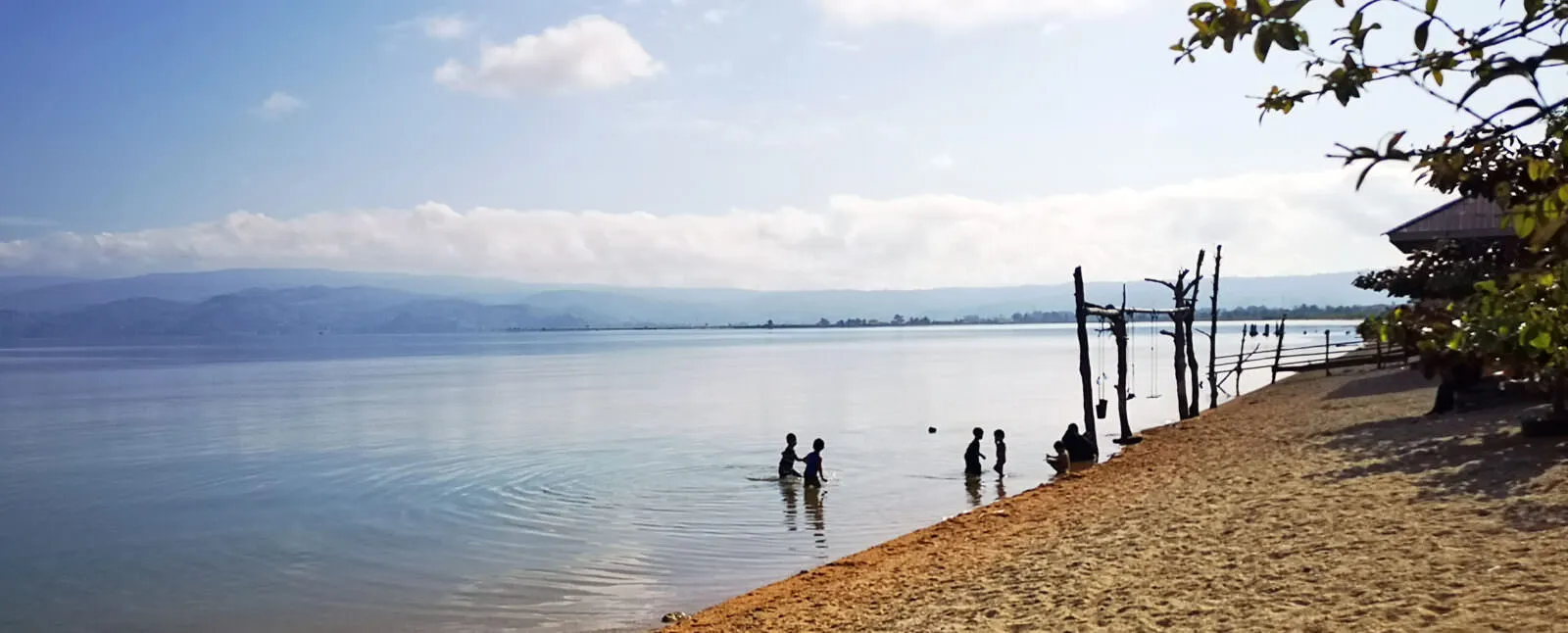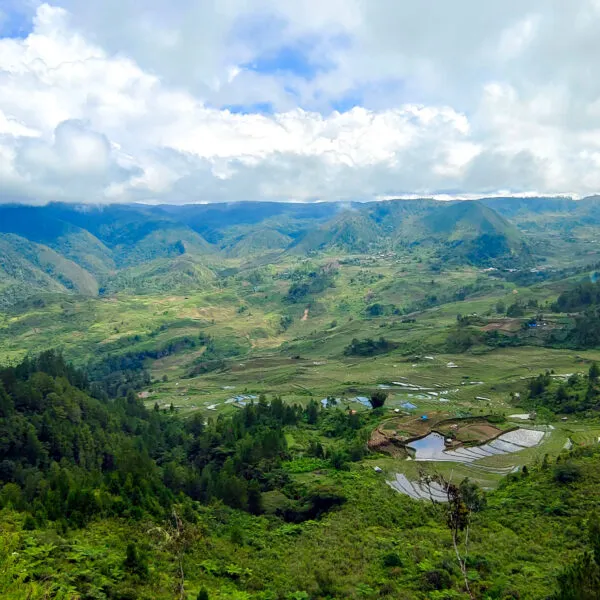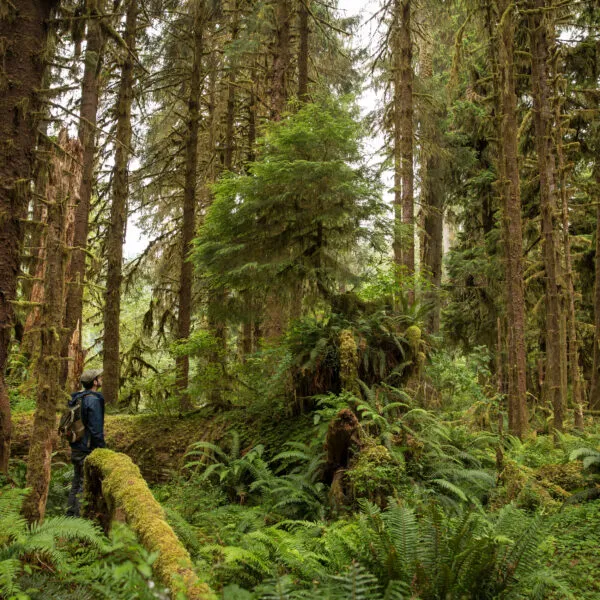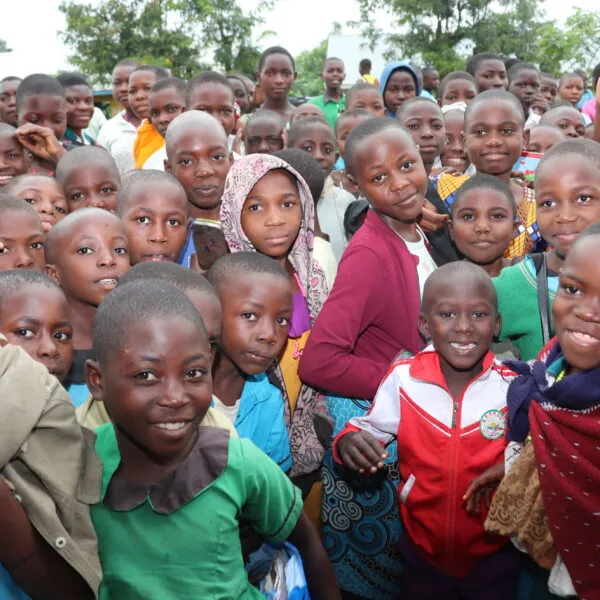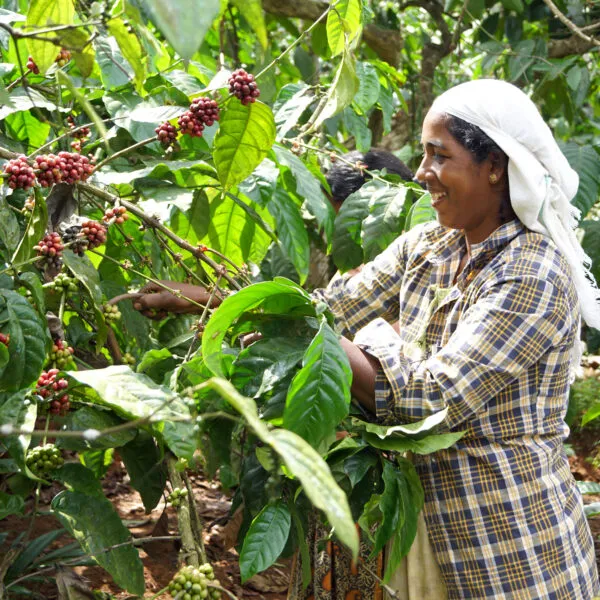For centuries, a lake in the heart of Central Sulawesi, Indonesia, has sustained life in its vicinity. Lake Poso is a sanctum of biodiversity with some of the most unique flora and fauna in the world. Silver eels snake across its solitary expanse, while rare orchids bloom near its western bank. In the surrounding forests, the threatened Sulawesi hornbill (Rhabdotorrhinus exarhatus), makes its nest, and endemic species of babirusa pig and anoa (dwarf buffalo) roam freely. But today, local scientists are sounding the alarm about severe pollution—caused in part by irresponsible agriculture—and the urgent need for vigorous water conservation measures.
For people who live in the villages dotting its shores, the lake is not only home but the very foundation of their farming livelihood. Yet human activities have taken a heavy toll on the local ecosystem. Toxic agrochemical runoff from nearby cocoa farms and rice paddies pollute the watershed—an immense arterial network of rivers, streams, and groundwater filling its basin. Meanwhile, the lake itself has become a dumping ground for garbage.
To protect this vital natural resource and the web of life it supports, farmers across the lakeside district of Pamona Seletan have banded together with the Rainforest Alliance to develop a community-led action plan.
From conflict to conservation
The Rainforest Alliance has been working with the Karya Bersama cocoa cooperative in Pamona Seletan since 2015. Violent clashes between ethnic groups ravaged the region between 1998 and 2007—but a decade on, former enemies have come together to grow sustainable cocoa. Since achieving Rainforest Alliance certification, the cooperative’s 500 farmers have reaped better harvests; yields have jumped by more than 20 percent in the last year alone.
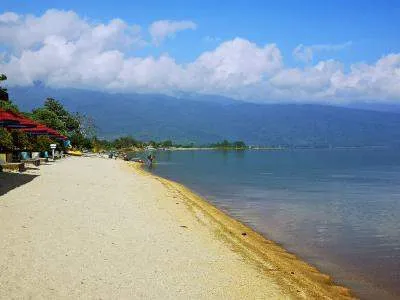
Now the farmers of Karya Bersama are leading the charge to clean up Lake Poso. Members of the cooperative are helping to expand our sustainable agriculture training program to an additional five villages at the southern edge of the lake. Through the program, 400 smallholders are learning proven techniques to protect the watershed, nurture soil health, reduce agrochemical use, and improve crop productivity. For example, pulling weeds by hand and turning them into organic compost (a technique called integrated weed management) keeps soils rich in nutrients while reducing the need for expensive chemical fertilizers and herbicides that pollute waterways.
Each of the villages has elected a local community champion to represent them. These champions have taken on the intensive work of building consensus among local farmers—whether their farms are Rainforest Alliance Certified or not—on responsible land use and watershed conservation. In workshops with scientists and government officials, the communities have come up with a proposal for an integrated natural resource management plan for Pamona Selatan. Already, the local authorities have taken note and provided funding for public bins to stem the flow of garbage into the lake.
Champions for the lake’s conservation
Sin Simpotu, a 41-year-old farmer, said these trainings have shown her a way of holding on to a traditional way of life she cherishes. Her lakeside village, Bo’e, is one of the few areas of Poso that has not been intensively farmed. While the villagers depend on rice paddies by the shores of the lake for food, they do not rely on a single cash crop for their income. Instead, the village cultivates a diverse mix of cocoa, coffee, and fruit in vibrant “forest gardens.” This is an ancient form of sustainable farming practiced across the tropics for millennia.
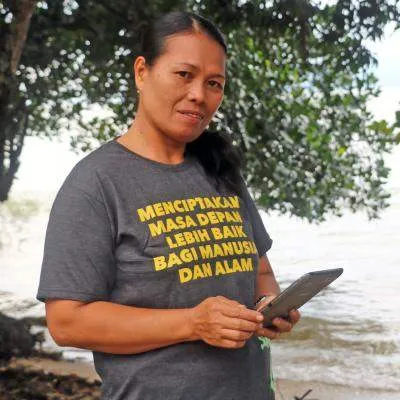
Sin explained that in recent years, villagers have felt increasing economic pressure to abandon this biodiversity-friendly farming tradition for intensive monoculture farming that pollutes the lake. But when she began attending Rainforest Alliance trainings, she immediately saw how she could make her forest garden more profitable. “I have been a farmer all my life,” said Sin. “Now I know how to reuse farm organic waste to produce organic fertilizer, making natural pesticides from the plants around my farm.”
As her community’s local champion, Sin monitors conservation actions around Lake Poso, recording her findings on a tablet. Hoping to inspire others, especially women, she has taken an active role as a sustainability leader in her village.
“I realized we have to protect nature,” said Sin, “because nature provides many things for us. We grow together with nature; we need to protect it for our younger generations.”
The project is financially supported by the Critical Ecosystem Partnership Fund, a joint initiative of l’Agence Française de Développement, Conservation International, the European Union, the Global Environment Facility, the Government of Japan and the World Bank. The fund’s fundamental goal is to ensure civil society is engaged in biodiversity conservation.
